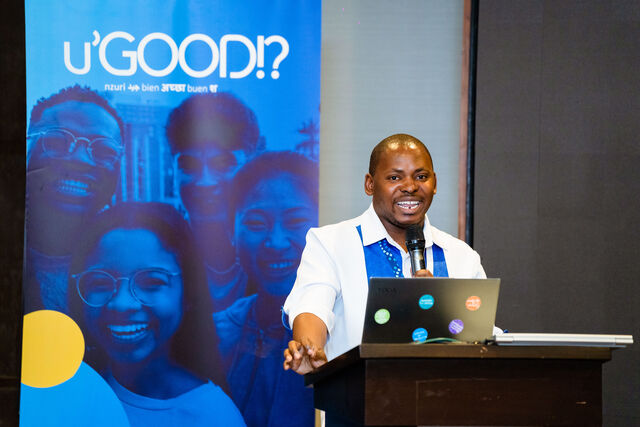Relational wellbeing and youth mental health: a focus on the Global South
Over the past few decades, there has been growing interest in what it means to have mental health, what influences our mental health, and what could be done to facilitate mental health promotion.
The World Health Organization describes mental health as “a state of mental well-being that enables people to cope with the stresses of life, realize their abilities, learn well and work well, and contribute to their community”.
It is generally recognised that mental health is more than the absence of psychological disease, and that it entails our abilities to subjectively and collectively engage with everyday life. This includes how we make decisions and enact behaviours or practices that move us to realise our capabilities, confront obstacles, and foster positive outcomes.
Mental health is thus a basic human right that is crucial for our overall wellbeing and is prioritised in the United Nations Sustainable Development Goals 2030 (SDG 3).
The World Health Organization has also established the Comprehensive Mental Health Action Plan 2013-2030, which is an evolving strategy to endorse global “actions to promote mental health and well-being for all, to prevent mental health conditions for those at-risk and to achieve universal coverage for mental health services”.
Together, these commitments, along with other global, regional and local actions, urge researchers, practitioners, civil society and decision-makers to prioritise mental health promotion alongside understanding the risks, harms and stigma associated with mental health conditions.
u’GOOD’s contribution to mental health research
Considering these global imperatives, u’GOOD purposively identified mental health research as one of its thematic priorities. This, considering evidence that more than one billion people globally live with a mental disorder, and that one in every 100 deaths worldwide are attributed to suicide.
This includes youth, as the recent World Mental Health Report shows that more than 13% of young people aged 10 to 14, 15 to 19 and 20 to 24, respectively, live with a mental disorder.
Depressive and anxiety disorders are more commonly experienced by this younger cohort, and death by suicide was identified as one of the top three causes of death for young people aged 15 to 29 years. Moreover, suicide is disproportionately higher in low- and middle-income countries, which is also where most youth live.
In honour of World Mental Health Day that was marked on 10 October and Mental Health Awareness Month, observed annually in October in South Africa, we reflect on how u’GOOD-funded projects will contribute to the youth mental health promotion agenda in the Global South.
Although mental health is only one of the thematic pillars of u’GOOD, it is a cross-cutting priority. Thus, while we have 12 projects that focus on youth mental health, five explore this at the intersection of climate change and digitalisation.
Aligning with the u’GOOD intention to conduct research with, by and for young people, all projects employ strategies to explicate the lived experiences of young people and prioritise co-creation and meaningful partnerships.
Applying the relational wellbeing framework, projects will engage with important questions such as:
- How can youth voices be meaningfully included in youth mental health research and practice in Global South contexts?
- How can relational wellbeing tools be developed and used to understand youth mental health?
- How can we draw on indigenous knowledge systems to better understand relational wellbeing and youth mental health (including suicide ideation and attempts, and transgenerational trauma)?
- How can digital technologies or platforms be harnessed to provide mental health support to young people, including youth living with disabilities?
- How can relational wellbeing approaches be used to develop interventions to promote youth mental health in diverse contexts?
- How can psychological resilience be cultivated to support young people to cope with climate change and associated environmental stressors?
Collectively, the knowledge produced through these projects will move us closer to understanding how contextually relevant and culturally sensitive approaches and knowledge systems can be harnessed to promote youth mental health and develop targeted interventions, practices and policies for young people in the Global South.

